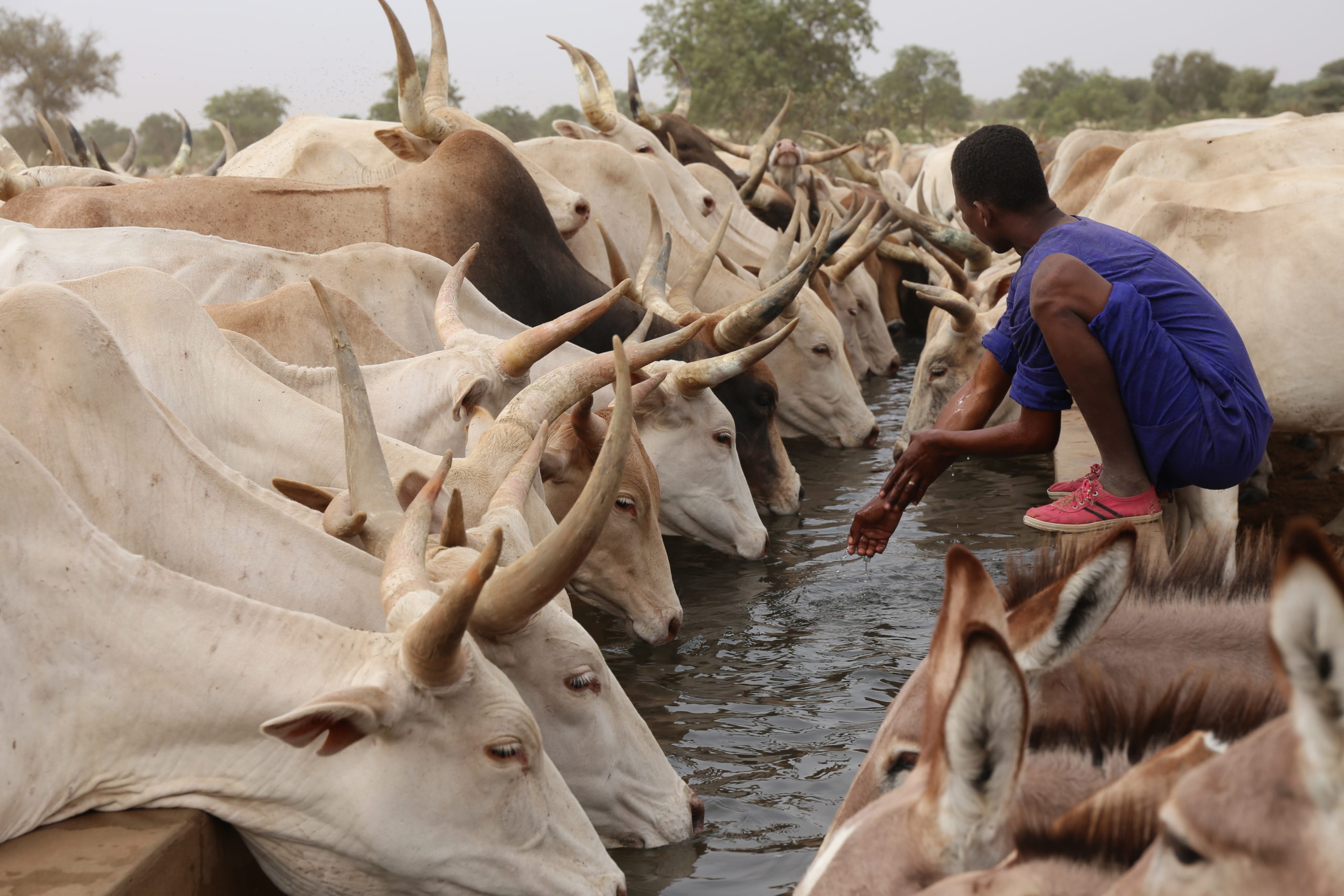Focusing on livestock for sustainable African AgriFood systems
In this article, we uncover three AgriFood Africa Innovation Awards that have improved food security and livelihoods by safeguarding livestock, highlighting scientific and technological advancements for scaling-up sustainable AgriFood systems across Africa.
The need: Focusing on livestock for sustainable African AgriFood systems
The livestock sector is growing rapidly in low and middle-income countries, contributing up to 40% of total agricultural GDP within these nations (FAO). In Africa in particular, livestock are an important part of sustaining income for many smallholder farmers.
In Africa, safeguarding livestock, protecting animal health, and ensuring the long-term viability of indigenous species are all pivotal to achieving sustainable farming practices, and having physical, social and economic access to sufficient safe and healthy food.

The solutions: AgriFood Africa Innovation Awards livestock case studies
The case studies below showcase innovative strategies and practical solutions to improve livestock health, productivity and market viability in African AgriFood systems.
In Nigeria, one project identified key genetic factors to reduce poultry mortality, while another assessed genetic diversity in native cattle to develop improved breeding practices for improved overall herd health. In Tanzania, researchers revealed how low-cost sensors can tackle tick-borne disease on dairy farms, establishing supply networks and commercial routes for the technology. Read more about these projects below.
-
Identifying modifiers for Frizzle feather gene expression in the FUNAAB-ALPHA local chicken
The frizzle-feathered chicken is crucial for smallholder farmers in Nigeria for income, and as a protein source for rural households. Despite being suited to the African climate and relatively resistant to disease, frizzle-feathered chicken are associated with low productivity and little effort has been made to conserve this local breed.
A successful collaboration between Kellie Watson at The Roslin Institute and Matthew Wheto, from the Federal University of Agriculture, Abeokuta (FUNAAB) is helping to preserve the unique genetic stock of this vital poultry species through detailed phenotyping and also improving productivity by determining the causes of high mortality during hatching.
The partnership established strong collaborative ties and amassed a wealth of information on feathering patterns, and what genetic modifiers are linked to reproductive success or embryo mortality, positioning the project as a leading initiative in securing the genetic future of the frizzle-feathered chicken in Nigeria and beyond.
Future opportunities:
- Completing genome wide association analysis to strengthen project findings
- Improving the productivity of other poultry species in Africa using similar methodologies
-
Development of genomic resources for Muturu cattle at risk of extinction in Nigeria
This project, led by Oluyinka Opoola at the Centre for Tropical Livestock Genetic and Health (CTLGH), University of Edinburgh and Matthew Wheto, The Federal University of Agriculture, Abeokuta (FUNAAB), aimed to safeguard Nigeria’s Muturu cattle, a breed facing extinction but prized for its large frame and suitability for beef production.
Efforts to conserve and diversify the Muturu population face obstacles, including a preference for on-farm mating, resulting in inbreeding. Research on the breed’s physical and genetic traits has been limited.
To address these challenges, the project focused on two key areas: animal tagging for identification and conservation; and genetic diversity assessment to understand the breed’s genetic profile.
In early 2023, the project engaged farmers on improving breeding practices to boost the survival and productivity of the breed. Tail hair samples from 500 cattle in Southwest Nigeria were genotyped at Neogen’s Dairy School in the UK. The resulting data enables farmers to make informed decisions on future breeding strategy to ensure sustainable conservation and increased productivity.
-
WELL-COW: Tackling tick-borne disease in smallholder dairy farms in Tanzania with low-cost animal sensing
Tick-borne disease is a major animal health and welfare concern across Sub-Saharan Africa. Without early detection, the impacts on herd mortality, productivity and farm income are severe.
This collaboration, led by Dr. Carol-Anne Duthie at SRUC and Zabron Cuthibert Nziku from the Tanzanian Livestock Research Institute (TALIRI), investigated the use of affordable sensing systems to determine their potential for disease detection and market integration.
To do this, the team conducted face-to-face surveys and focus groups, creating ties with over 400 smallholder farmers and supply chain stakeholders in two distinct agro-ecological zones. The zones were selected for their milk production capabilities and differences in infrastructure and climate.
This approach gathered both quantitative and qualitative data on demographics, farming challenges, and receptiveness to the technology, demonstrating the feasibility and economic benefits of sensor technology.
The team’s efforts have laid the groundwork for the development of the sensors and strategic routes to market, showcasing the innovation’s potential to transform disease management in dairy farming.
Future opportunities:
- Advancing the WELL-COW system design with key stakeholders
- Expanding the commercial strategy and exploitation plan
Discover more about our impact
With 86 Innovate UK AgriFood Africa Connect Innovation Awards completed, each project has helped to improve the sustainable management of African AgriFood systems. The commitment from project leads is to create positive change, guided by GCRF AgriFood Africa’s key goals which aim to reduce poverty, increase economic prosperity, and improve wellbeing.
Dive deeper into our ‘Focus on’ series to explore more project impacts on key sectors
Related programme

AgriFood Africa Connect
Innovate UK AgriFood Africa Connect brought innovative people and organisations across the UK and Africa together to develop solutions for the sustainable management of AgriFood systems in Africa.

Increasing the development of and access to safe and nutritious food in Africa

